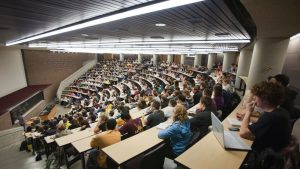Background
The demanding nature of medical school training is being increasingly acknowledged (Cottrell et al.,1994). Medical students often have large volumes of content to learn and have pressures arising from clinical placements. This intense academic environment means that students often have problems impacting their personal or academic life (Dowell, 1989). Consequently, their competitive environments can lead to high attrition rates and make students more prone to mental health issues.
Personal and academic support for medical students has therefore become increasingly recognized and widely spread (Cottrell et al., 1994), with the General Medical Council highlighting the importance of personal tutors in medical schools (Abrams et al., 2020). Personal tutors support their students’ personal development and academic progress and help with the new transition into university life. In healthcare, Gidman (2001) positions personal tutors to have three main roles: pastoral, clinical, and academic.

The three models of personal tutoring described by Earwaker (1992)
- Pastoral: where an academic tutor takes up the role of a personal tutor. This is the most prevalent mode used in the United Kingdom (U.K)
- Professional: where students ask their lecturers for help and guidance opportunistically
- Curricular: where tutoring is embedded into the academic experience such as timetabled classes
Whilst a single definition of the personal tutor does not exist (Walker, 2020), Charnock (1993) report on the key attributes of an effective personal tutor, such as effective communication skills, self-awareness and credibility. Furthermore, Dobinson-Harrington (2006) highlight the crucial fundamentals for a progressive student/tutor relationship, such as engagement, mutual trust and respect. Nonetheless, research into personal tutoring remains to be very limited (Yale, 2017) (Maciej Serda et al., 2006).
Benefits of personal tutoring
Purdy (1997) highlight that clinical environments are often authoritative and hierarchical in nature, which may create stressful environments for trainees. Therefore, guidance of personal tutors would be invaluable in these settings. For example, Abrams et al. (2020) found that tutors’ support help students think of ‘alternative narratives’ to perfectionism and open-mindedness. In their qualitative study, they interestingly highlight how relinquishing hierarchical powers between students and their personal tutors is valuable. Abrams et al. (2020)’s study benefits from being recently published in 2020 and took place in the U.K, making their results relatable, although they notably highlight their limitations of only focusing on primary care settings.
Although Stephen et al. (2008) highlight the significance of monitoring university students’ academic development, as ‘decision-making’ guidance from parents is usually lost, disappointingly, Coles (1993) report that just under 40% of students receive advice on coping with the stresses of medicine. In contrast, Bellodi et al. (2021) highlighted the benefit of personal tutors in a Brazilian medical school, where they outlined how monitoring students’ academic progress can help students break their poor academic cycle.
Moreover, Newton and Smith (1998) demonstrate how personal tutors are the most appropriate people to offer assistance for students during their clinical placements. Although the study focuses on nursing students and may also be outdated, their conclusions can still be relatable to the current medical field, where personal tutors can be seen as role models for career guidance (Abrams et al., 2020). Additionally, McIntosh and Shaw (2017), reveal how personal tutoring can even improve students’ resilience. Although their study has a small sample size (n = 8) and doesn’t focus on the medical field, their conclusions are insightful nonetheless for the future doctors, who are required to be resilient in dynamic health care systems.
Other additional benefits of personal tutoring include fostering attributes such as social integration and self-management (McIntosh and Shaw, 2017) and helping students gain an understanding of their own selves (Warne and McAndrew, 2008).

Challenges
Whilst there is clear literature that personal tutoring is vital for students’ support, how best to provide it successfully remains a challenge. Richardson (1998) ’s qualitative study, highlights that well-defined standards on how personal tutor system should be operationalized do not yet exist. This can often cause challenges. For example, Sheahan (1981) highlights that expectations of tutors and tutees of tutor-tutee relationship may often be different. This is further supported by McFarlane (2016), Owen (2016) and Ridley (2006) where they highlight the personal tutor role often lacks clarity. On reflection, this confusion could be attributed to the gap in the researched literature for a specific description of personal tutor.
The success of the pastoral support system is often reliant on students having self-awareness, maintaining high engagement levels with their tutors and seeking help (Yates, 2011). This can be a challenge for students who struggle to engage due to apprehensions about effects on their future careers as doctors and confidentiality (Picton et al., 2022). On reflection, one way to tackle this could be by scheduling consistent meetings that are regular between the students and their personal tutor. However, this may prove to be difficult with limited resources, where personal tutoring is considered cost-intensive, and often subject to under-resourcing (Walker, 2020).
Gaps in the literature
Despite studies establishing the impact of personal life on academic life, and the significance of personal tutoring in medical schools, there are limited studies available that focus on online personal tutoring support. Jelfs et al. (2006) ‘s study published in 2006 demonstrated that tutees who receive online tutorial support have a worse overall experience compared to students who receive support face to face. It is therefore an evident question that universities would now be answering- how efficient is the pastoral support in a post COVID19 pandemic world, where the modes of meetings have changed.

Conclusions and the educational issue of interest
Personal tutoring is crucial and integral to medical schools. Personal tutors are increasingly being valued and the need for more studies on pastoral support is essential to need to maximise students’ achievements and minimise attrition.
By : Dr. Sara Al-Khafaji